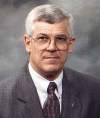Editorial comment
After the attacksAs this was written, it’s been exactly one month since the terrorist attacks on New York and Washington D.C. Since the atrocities, we (particularly in the U.S.) have been inundated with information about our security failures, the terrorists’ mindset, the possibility of future attacks and the efforts underway to root out Osama bin Laden and his crazed scumbag followers. Due to this information overload, we must admit to a temporary inability to put forth a focused opinion about all that’s happened. Instead we’ll offer some random observations:
While all of this was going on, some Harvard alumni and contributors were trying to get the ROTC (Reserve Officer Training Corps) officially reinstated at the university. The faculty voted to ban it in 1969. Currently, Harvard students who want to participate in ROTC must travel to nearby Massachusetts Institute of Technology. But don’t look for ROTC at Harvard any time soon – now the objection is the military’s "don’t ask, don’t tell" policy on gays. In fact, again according to The Wall Street Journal, a Harvard graduate who now works as an ROTC recruiter is not even permitted to make his presentations at the school. Unlike student groups such as the Bisexual, Gay, Lesbian and Transgendered Supporters Alliance, the Harvard Boxing Club and the Harvard Global Peace Project, which can stuff student’s campus mailboxes for free, the recruiter must pay to mail fliers to ROTC prospects.
Publishing is still our focus. It’s amazing how time flies. In January 2000, Gulf Publishing Company was purchased by two private investment partners, whose goal was to transform the company into a e-commerce site and make a quadrillion bucks in the process. Like nearly every other dot-com venture in the world, the idea was infinitely better than the outcome, and as a result, we’ve had to suffer through the dot-flop shakeout. That’s the bad news. The good news is that those venture partners had the good sense to pull the plug early on the e-commerce idea and prepare Gulf for sale to a company whose primary interest is publishing. After several fits and starts, and numerous presentations to potential suitors, an agreement was closed on August 31 to sell Gulf’s assets to London-based Euromoney Institutional Investor PLC (EII). There’s even better news – EII was been built on a philosophy of editorial excellence, not flim-flam commercial publishing, which means that you can look forward to the same high standards of the old Gulf Publishing Co. One of EII’s prime properties is The Petroleum Economist, a highly regarded publication covering the business of international oil and gas. And although it’s always been World Oil’s objective to cover the industry from an international perspective, our new access to PE’s expertise in Europe offers numerous opportunities for expanded coverage and new synergies. So, what does all of this mean to you? Well, since the inception of Gulf Publishing Co. in 1916, World Oil magazine and its predecessor publications have reported on industry’s technical and business trends and how they shape the upstream marketplace. We’ll continue to do that. But now we will have the resources of a multi-million dollar (or should that be Pounds Sterling?) corporation behind us. And, while we realize there will be much hard work ahead, it’ll be nice not being a red-headed step-sibling to some dot-comer with a cell phone in one hand and a Palm Pilot in the other. Economics lesson. If you bought $1,000 worth of Nortel stock a year ago, it would now be worth $49. If you bought $1,000 worth of Budweiser (the beer, not the stock) a year ago, drank all the beer and traded in the cans for the nickel deposit, you would have $79. Moral – Start drinking heavily and recycle.
|
- Prices and governmental policies combine to stymie Canadian upstream growth (February 2024)
- U.S. producing gas wells increase despite low prices (February 2024)
- U.S. drilling: More of the same expected (February 2024)
- U.S. oil and natural gas production hits record highs (February 2024)
- U.S. upstream muddles along, with an eye toward 2024 (September 2023)
- Canada's upstream soldiers on despite governmental interference (September 2023)
- Applying ultra-deep LWD resistivity technology successfully in a SAGD operation (May 2019)
- Adoption of wireless intelligent completions advances (May 2019)
- Majors double down as takeaway crunch eases (April 2019)
- What’s new in well logging and formation evaluation (April 2019)
- Qualification of a 20,000-psi subsea BOP: A collaborative approach (February 2019)
- ConocoPhillips’ Greg Leveille sees rapid trajectory of technical advancement continuing (February 2019)



